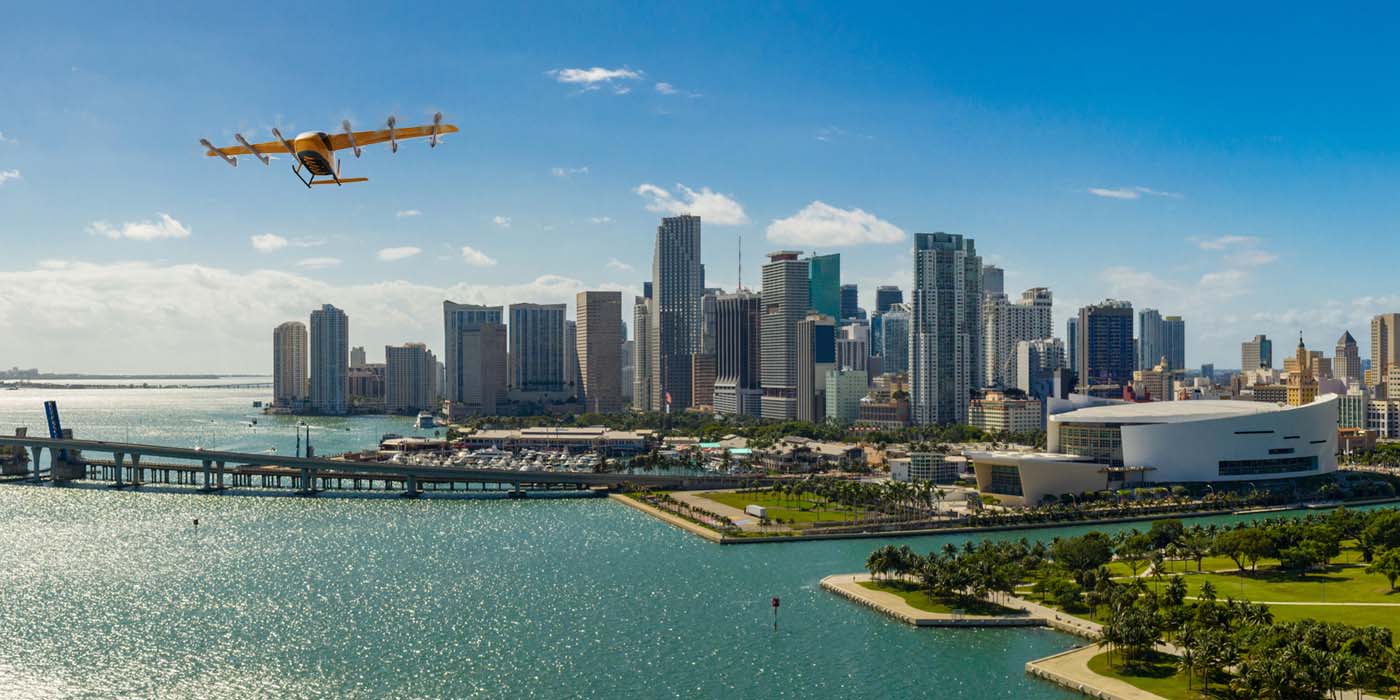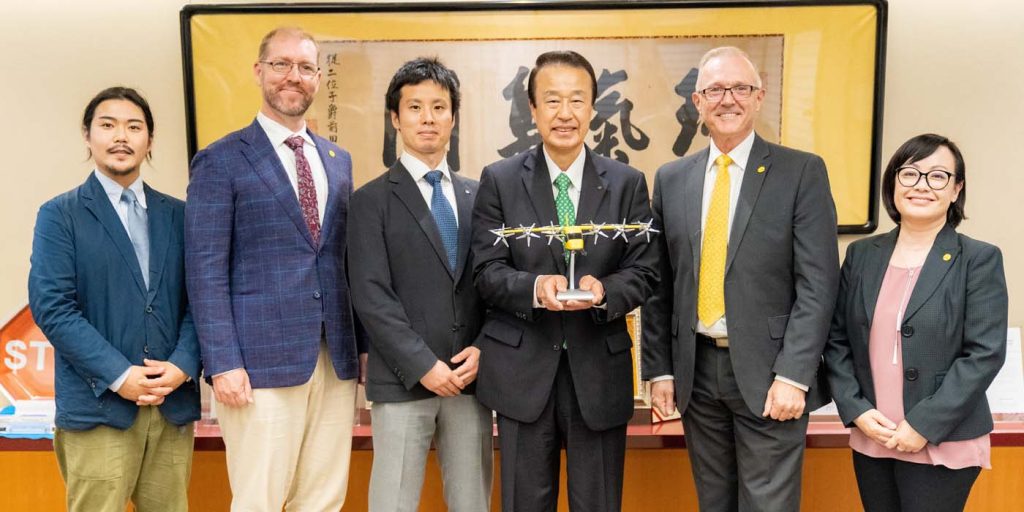
Advanced air mobility developer Wisk Aero wasted no time during the first day of the Paris Air Show, announcing two separate deals to establish autonomous air taxi operations in two different regions. Those agreements include Memoranda of Understanding with partners in Miami in the US, and the City of Kaga, Ishikawa, in Japan.
As you may already know, Wisk Aero operates out of California as a wholly owned subsidiary of Boeing. The company’s flagship model, the Cora (pictured above), is an autonomous all-electric aircraft that predates the Wisk Aero brand and has seen several generational variants over the seven years or so.
Last month, Wisk and NASA built on an existing partnership, committing an additional five years to their research. They hope to bring regulated and autonomous air taxi flights to the public by the end of the decade.
If and when those commercial operations begin, we know at least two planned regions for Wisk, as it announced an expanded partnership in Japan today and a new agreement with the City of Miami.

Wisk establishes Miami as a US autonomous air taxi hub
The first of two press releases from Wisk Aero today includes news of two separate Memoranda of Understanding (MoUs) – one with the Miami-Dade Aviation Department (MDAD) and another with the University of Miami’s Engineering Autonomy Mobility Initiative (MEAMI).
Under the terms of the signed agreements, Wisk and MDAD will work together to identify possible locations for air taxi vertiports at existing airports, including Miami International Airport (MIA), Miami Executive Airport (KTMB), and Locka Executive Airport (OPF).
Wisk will provide the necessary technical guidance pertaining to viable vertiport infrastructure in order to establish autonomous air taxi operations in the region and in return, MDAD will incoporate said technologies and infrastructure into its existing plans for airport development and expansions.
Through the other Miami-based MoU, Wisk will gain access to the University of Miami’s facilities to collaborate on R&D for autonomous aerial operations, regulations, and safety, while simultaneously developing business opportunities, UD regulatory frameworks, and pursuing grant opportunities for a joint University project. Per Wisk CEO Sebastien Vigneron:
Miami has demonstrated long-standing support for AAM, making it a natural fit for future Wisk operations. We’re incredibly excited to deepen our roots here with both the Miami Dade Aviation Department and the University of Miami. These partnerships are helping us build the entire AAM ecosystem and unlock the full potential of autonomous operations at scale so we can bring safe, everyday flight to everyone.
Wisk rolled out a second press release on day one of the Paris Air Show, announcing the signing of a three-party MoU with the City of Kaga, Ishikawa, Japan, and Japan Airlines’ subsidiary, JAL Engineering Co., Ltd (JALEC), to introduce autonomous air taxi travel in Japan.
Wisk had an existing partnership with Japan Airlines and JALEC, but has honed in on Kaga City to explore commercial deployment. Kaga City has been designated by Japan’s government as a “national strategic special zone,” authorized for the development, testing, and validation of autonomous air mobility. Per city mayor, Riku Miyamoto:
As the first step in Wisk’s business expansion into Japan, Kaga City will strongly support the establishment of an operations base and support the construction of an AAM operation model in collaboration with JALEC. Kaga City is a local government with a population of approximately 62,000 people, but because the city has been selected as a national strategic special zone, we are able to carry out bold regulatory development in Japan. The advantage of not being a big city like Tokyo or Osaka is that there is a high degree of freedom as a research and development field, and one-stop arrangements are possible.
Through the three-party MoU, Wisk, Kaga City, and JALEC will research and develop regulatory systems, analyze the local market and social acceptance of autonomous air taxi technology, and establish a supply chain to support localized manufacturing. Wisk’s CEO once again spoke:
We are excited to deepen our commitment to Japan and further our partnership with JAL through this new collaboration with Kaga City. Japan is a key market for the introduction of AAM, and Kaga City’s forward-thinking approach to future mobility, coupled with its special zone designation, provides an ideal environment for us to explore and demonstrate the benefits of our Gen 6 aircraft. This partnership is a significant step towards building the necessary ecosystem for autonomous flight in Japan.
FTC: We use income earning auto affiliate links. More.




![Not enough: Corvette concept falls 1,000 hp short of Chinese hypercar hype [video]](https://i0.wp.com/electrek.co/wp-content/uploads/sites/3/2025/08/not-enough.jpg?resize=1200,628&quality=82&strip=all&ssl=1)







